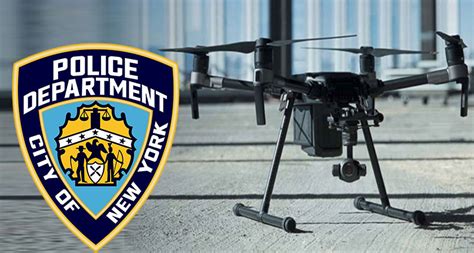The recent announcement by the NYPD to deploy drones in response to 911 calls across 5 NYC precincts has sparked a wave of discussions and concerns among citizens. User comments reflect a mix of skepticism, criticism, and cautious optimism regarding this technological advancement in policing. One user raised the question of drones being repurposed for non-criminal activities like monitoring unauthorized grills, highlighting potential misuse of resources and the limitations of drones in dealing with real-time criminal incidents.
The comments also shed light on the existing regulations and misconceptions related to grilling in NYC. The debate over the legality of certain grilling practices exposes the intricate balance between public safety, individual freedoms, and law enforcement. Users shared personal experiences and challenged inaccuracies, emphasizing the complexity of urban regulations and enforcement challenges.
Furthermore, the conversation delved into broader issues surrounding police response, crime prevention, and community trust. Users expressed doubts about the effectiveness of drones in crime deterrence, citing the importance of human intervention, empathy, and judgment in volatile situations. Concerns were raised about the potential misuse of drones for surveillance, revenue generation, and the erosion of civil liberties.
Some users highlighted the evolving nature of police technology and its impact on law enforcement practices. The discourse on the trajectory of policing emphasized the need for transparency, accountability, and public oversight in deploying surveillance technologies like drones. Historical examples of technology misuse in policing, such as tasers and traffic cameras, served as cautionary tales for the unchecked expansion of drone usage in law enforcement.
The discussion also touched upon the ethical implications of autonomous policing devices like drones. Speculations about future scenarios involving weaponized drones and AI-powered monitoring raised concerns about the militarization of civilian spaces, privacy invasion, and disproportionate use of force. Users debated the delicate balance between innovation in crime prevention and safeguarding individual rights and liberties in a democratic society.
Ultimately, the varied opinions expressed in the comments underscore the need for a nuanced approach to integrating drones into law enforcement practices. While some users highlighted the potential benefits of drone technology in enhancing police response and evidence collection, others cautioned against the unintended consequences of overreliance on automation in critical decision-making processes. The debate surrounding NYPD drones reflects broader societal discussions on the role of technology in shaping the future of policing and civil liberties.
As the NYPD moves forward with its drone deployment strategy, addressing public concerns, ensuring transparency, and establishing clear guidelines for drone usage will be essential in maintaining community trust and upholding constitutional rights. Balancing technological innovation with ethical considerations and regulatory frameworks is paramount to fostering a safe, just, and accountable law enforcement system in a rapidly evolving digital age.
The dialogue sparked by the introduction of NYPD drones serves as a reminder of the complex interplay between technology, governance, and individual freedoms in contemporary law enforcement practices. By critically analyzing user feedback, policymakers, law enforcement agencies, and the public can engage in constructive discussions to navigate the challenges and opportunities presented by emerging surveillance technologies in urban environments.
In conclusion, the convergence of public opinion, regulatory oversight, and operational best practices will shape the trajectory of NYPD drone usage and its impact on policing methodologies, civil liberties, and community-police relations. Understanding the multifaceted implications of drone deployment in law enforcement is crucial for fostering a responsible and ethical approach to enhancing public safety while safeguarding constitutional rights and democratic values.


Leave a Reply